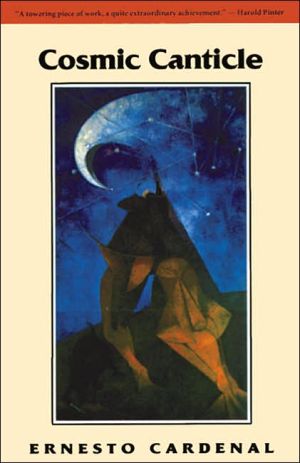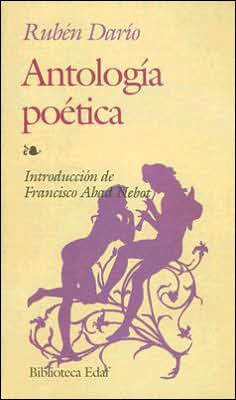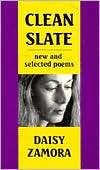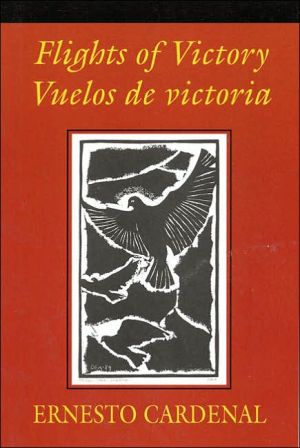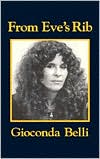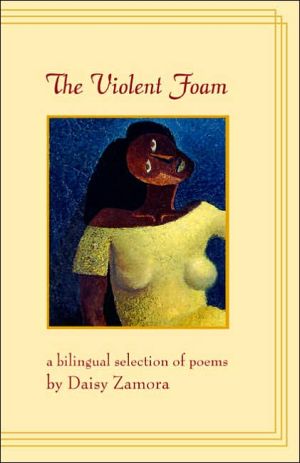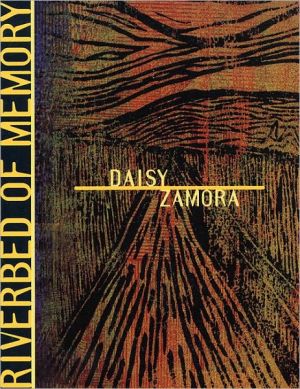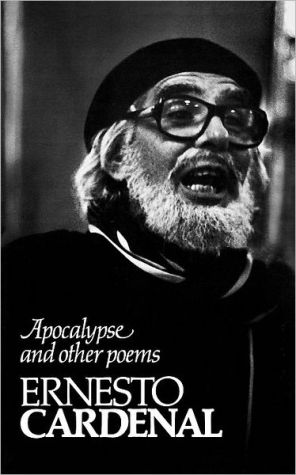Cosmic Canticle
In this epic poem, Cardenal explores Latin American history by relating the evolution of the universe to the development of human understanding. Throughout, Cardenal blends the visible and the invisible, science and poetry, religion and nature, in 43 autonomous yet integrated cantos.
Search in google:
In this epic poem, Cardenal explores Latin American history by relating the evolution of the universe to the development of human understanding. Throughout, Cardenal blends the visible and the invisible, science and poetry, religion and nature, in 43 autonomous yet integrated cantos."Cosmic Canticle is a towering piece of work, a quite extraordinary achievement."-Harold Pinter"This epic will be compared to Neruda's Canto General. . . . Heady stuff."-Library Journal"Ernesto Cardenal is one of the most important poets writing today. He is one of the giants, in the tradition of Neruda and Guillen. And like all those bearers of a truly human truly transforming art, he is deeply political, deeply committed to struggle, and absolutely clear that to be art, rather than 'ain't,' the song must be truth to be beauty."-Amiri Baraka"Priest and Nicaraguan revolutionary as well as poet, Cardenal epitomizes what makes literature live in Central America today."-Booklist"Like Pablo Neruda, the Nobel Prize-winning poet from Chile, Cardenal combines politics and poetry while speaking forthrightly about the history of exploitation in the Americas."-National Catholic Reporter"This is much more than just another poet's collection of singular verse: Cardenal spent more than 30 years producing this epic, which relates Latin American history to the evolution of human understanding. More than 40 cantos in English are provocative creations."-The BookwatchThe towering figure of Latin American poetry, Ernesto Cardenal was born on January 10, 1925, in Granada, Nicaragua. In 1965, he was ordained a priest. He served asMinister of Culture for the Sandinista government from 1979 to 1988. He is currently the director of Casa de los Tres Mundos, a cultural organization in Granada, Nicaragua. Cardenal is the author of more than 60 volumes of poetry, essays, and criticism.Publishers Weekly``Background radiation allows us to deduce that the universe / is harmoniously curved / like a woman.'' This nearly 500-page poem of Father Cardenal, a priest who was Nicaragua's Minister of Culture during the Sandinistas' years in power, superficially recalls Genesis and some of the Old Testament and prophetic writings, and also peruses contemporary scientists and science writers such as Lewis Thomas, Carl Sagan, Stephen Hawking, Richard Feynman and Richard Dawkins, at times cited by name, in an attempt to justify the ways of God to Nicaragua and Latin America. The theology--largely homage to the Earth-goddess--seems literary, perhaps derived from Robert Graves. The text, as translator Lyons has rendered it, suggests the lecture outline of an eclectic, New Age professor. This is not a wholly credible synthesis of religious feeling and political engagement on the order of Milton or Blake, but instead the work of an amiable popularizer, seeking--yet not always reaching--the force of authentic prophecy or discovery: ``Man is society. / The loneliness we suffer comes from being only individuals. / Happiness is others.'' (Dec.)
\ Publishers Weekly - Publisher's Weekly\ ``Background radiation allows us to deduce that the universe / is harmoniously curved / like a woman.'' This nearly 500-page poem of Father Cardenal, a priest who was Nicaragua's Minister of Culture during the Sandinistas' years in power, superficially recalls Genesis and some of the Old Testament and prophetic writings, and also peruses contemporary scientists and science writers such as Lewis Thomas, Carl Sagan, Stephen Hawking, Richard Feynman and Richard Dawkins, at times cited by name, in an attempt to justify the ways of God to Nicaragua and Latin America. The theology--largely homage to the Earth-goddess--seems literary, perhaps derived from Robert Graves. The text, as translator Lyons has rendered it, suggests the lecture outline of an eclectic, New Age professor. This is not a wholly credible synthesis of religious feeling and political engagement on the order of Milton or Blake, but instead the work of an amiable popularizer, seeking--yet not always reaching--the force of authentic prophecy or discovery: ``Man is society. / The loneliness we suffer comes from being only individuals. / Happiness is others.'' (Dec.)\ \ \ \ \ Library JournalInevitably, this epic will be compared to Neruda's Canto General , but Cardenal is more geared to theology, science, and stream-of-consciousness than Neruda. Nor is Cardenal as doctrinaire, though he does cite James the Apostle demanding pensions for widows and nurseries for children and asserts that communion and communism are synonymous. Steeped in a spiritual love for Nicaragua and the world, Cardenal packs his epic with fact and aphorism that reflect all human experience. In the beginning was Chaos, order from disorder, the Tao, the supernova-created Sun, and the new notion of Gaia. Cardenal reminds us that the word theology was coined by Plato and that the Seminoles' dance of the fresh corn is a eucharist, too. He mocks Nixon, who said yes and no on Vietnam, the parrot Reagan, the Shah of Iran, Franco, and Somoza. There is a four-page bibliography of works by Cardenal but no introduction or glossary of the untranslated italicized words savored by this brilliant and humanitarian poet-priest of Nicaragua. Heady stuff recommended for all levels of academic libraries.-- Jack Shreve, Allegany Community Coll., Cumberland, Md.\ \
